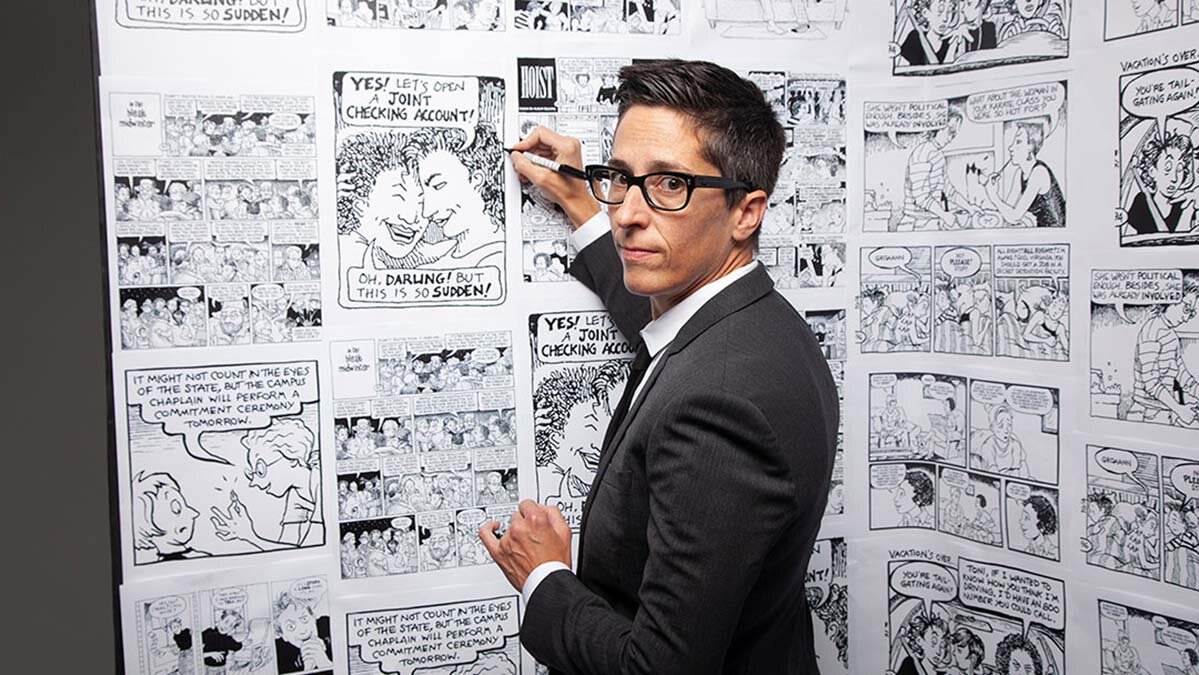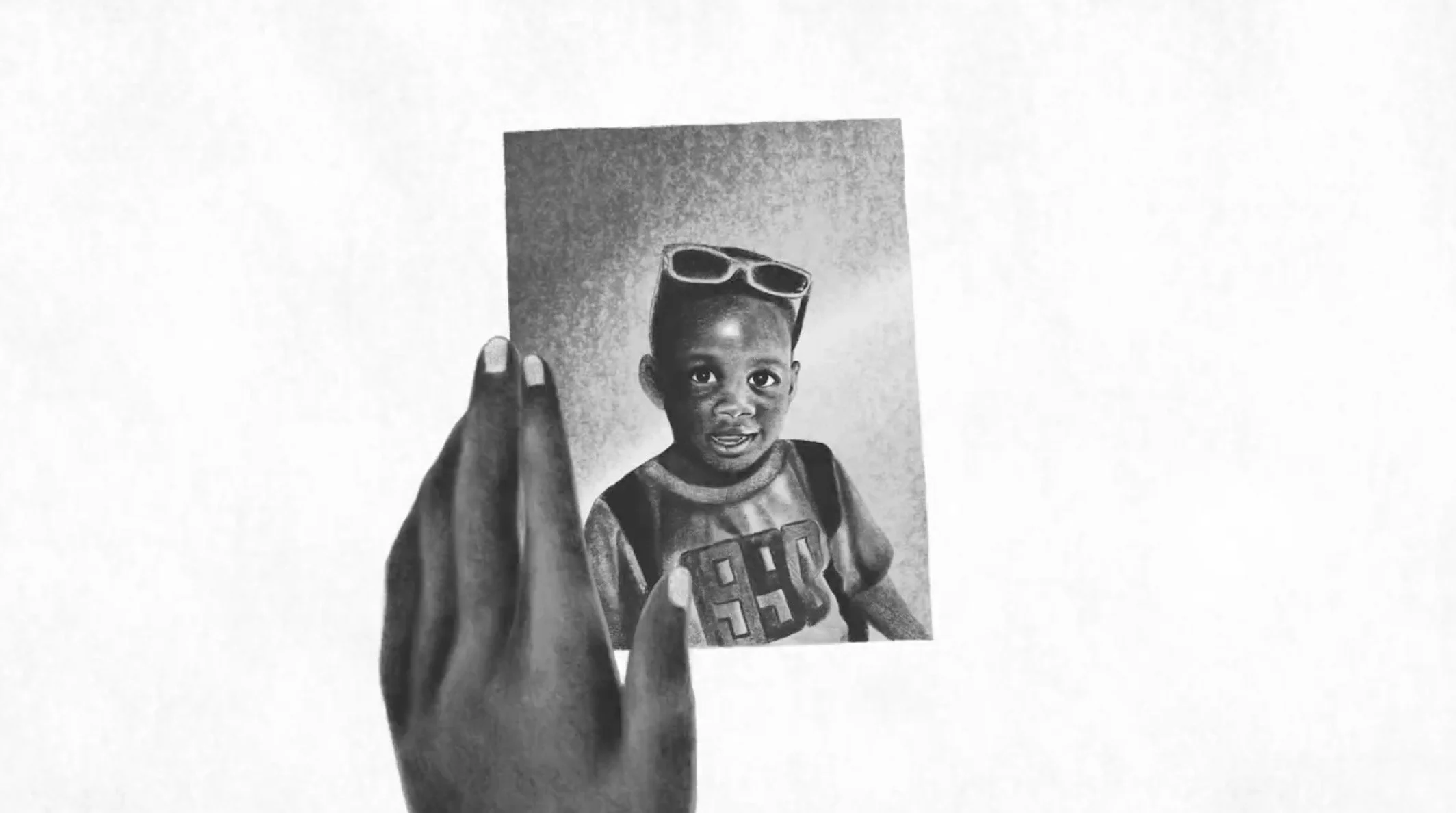Two Documentary Recomendations from the 33rd Annual Vancouver Queer Film Festival
/This year the Vancouver Queer Film Festival ran an impressive slate of over 90 individual films for its 2nd year completely online. In case you weren’t able to check everything out this year, here are reviews of my 2 favorite documentaries from the festival. Keep an eye out for these films as they find new homes in the coming months.
No Straight Lines: The Rise of Queer Comics
Going into the Vancouver Queer Film Festival this year, No Straight Lines: The Rise of Queer Comics was probably the film I was most intrigued by. It did not disappoint. Director Vivian Kleiman has crafted a fascinating history lesson about a vibrant world that exists just underneath the surface of popular culture, bursting with stories waiting to be told.
For many young queer people, comic books serve as a tool for fantasy fulfillment. The daily struggle of existence as an outsider is often reflected within the colourful pages of our favourite graphic novels, especially seeing as superhero comics—the dominant genre of the medium—are commonly underdog stories.
In No Straight Lines, this metaphor is highlighted beautifully by influential cartoonist Rupert Kinnard when he mentions how the superhero’s struggle to maintain a secret identity is not dissimilar from the experiences of queer people before they’ve come out of the closet. For those who can relate, like myself, you’ll find that this film is full of insightful musings about the unique culture of comics that make this a well-spent hour and thirteen minutes.
It’s important to note that this visual feast of a film is not focused on the world of mainstream comics. While, of course, classic characters such as Batman are mentioned, the film is specifically exploring the vibrant, underground culture of independent queer comic books. It’s a world once stigmatized and regarded by mainstream culture as obscenity that is now a bustling, loud artistic community, and the many stories it has birthed are fascinating.
One of this film’s greatest assets is that the cast is incredibly diverse, expressive and intriguing. Documentaries live and die by their featured storytellers, and No Straight Lines has no shortage of interesting people. This is perhaps more likely to be the case when every person you are seeing interviewed is an individualistic queer artist, regardless, it is still something to be thankful for. Out of almost every documentary I’ve watched before, this one has the highest percentage of people that I searched for online afterwards in order to follow their work. I was particularly impressed by Nicole Georges, who spent her entire interview holding a small dog as if it were a baby and never once made any reference to the fact that it was happening.
Lastly, it’s worth mentioning that one of this film’s best features is it’s wealth of beautiful archival content. Due to the nature of the subject matter, the filmmakers have access to a seemingly endless stream of original artwork, and thankfully they did not hold back. Every time a specific book or artist or character is mentioned you are immediately given a chance to see what they are referencing. This worked wonders for both the immersion of the film and the amount that I was able to retain. It helps as well that much of the imagery is quite striking. Seeing as the comics being spoken about here are the byproduct of an underground scene that focused largely on sexuality, gender and various subcultures, much of what is being depicted on these pages differs drastically in both content and style from what one may associate traditionally with comic books.
All in all, No Straight Lines: The Rise of Queer Comics exceeded my expectations. I’ll admit to my own personal bias in that I have a particular love for comics; nonetheless, everything I learned during this viewing was brand new to me, and I found the experience engaging from start to finish. I’d definitely recommend this film to somebody looking for something on the more lighthearted side of this year's VQFF programming, or anybody interested in the beauty that can be found at the intersection of art and queerness.
Well Rounded
Shana Myara’s debut documentary Well Rounded is, in my opinion, one of the brightest highlights in this year's VQFF slate. The film is a bold, thoughtful and surprisingly funny exploration of the experiences of several fat queer people making their way through life in the fatphobic and colonial culture of North America.
The topic of fatphobia is woefully under-discussed in mainstream media, and when it is, it’s often in bad-faith. I was lucky enough to discuss the movie with Shana, and she pointed this out to me. “Often the media frames these conversations as a debate about whether or not fat people deserve to be happy in their bodies, and that just further perpetuates the narratives we know so deeply. We’re surrounded by harmful narratives all the time, so this film is really a gift to those who need it.”
The hour-long documentary features the honest personal stories of comedians Candy Palmater and Joanne Tsung, as well as the multifaceted performer Ivory and the ever-talented local writer and model Lydia Okello. Additionally, psychologist Dr. Janet Tomiyama and historian Dr. Jenny Ellison are featured in order to aid the audience in grasping the psychological and socio-political context of the subject matter.
One of the unique strengths of Well Rounded is its ability to showcase not only a broad and intersectional perspective, but also have that wide lense be reflected in the presentation of the film itself. While many documentaries about important topics tend to rely on overlong shots of their subjects looking wistfully towards the ocean, Well Rounded dedicates much of it’s screen time to beautiful hand-drawn animations by UK artist Alexandra Hohner. It’s a lovely flourish, and is used to great effect while depicting the memories and internal experiences of the subjects. Shana chose to include this in the film because she wanted to allow the viewer to look into the speaker’s mind in more powerful and eye-catching ways. “The way we experience our own lives is so colourful and surreal. Having that represented through animation seemed to more accurately capture that than just the classic documentary B-roll.”
It’s hard to believe this is a debut feature. From the clear tonal vision to the thematically relevant hip-hop music by local artist Kimmortal that is laced throughout, there is a palpable confidence to Well Rounded. For even the most seasoned filmmakers, striking a balance between comedic levity and serious discussions of trauma is no easy feat, but Shana Myara did not shy away from the challenge. “I knew this film needed to be funny. When comedians say things, they’re able to lay truths bare in a way that people can more easily digest. I think they can make changes that maybe the rest of us can’t.”
When faced with people who do not recognize your humanity, it can be hard to think clearly or kindly. It takes a nearly superhuman amount of compassion to detach yourself from your fight or flight instincts and proudly proclaim that you do not care. Luckily, it would seem Shana Myara and the many people involved in this film are on that superhuman wavelength. Well Rounded is able to walk the very fine line between proclaiming ‘screw you if you don’t respect me’ and warmly inviting people who don’t understand to come and learn.
“One thing I’m really proud of is that this film was made from a particular gaze. I was not making this film for the mainstream to learn about us, I was making this film for us, by us and anybody is welcome to watch it. It creates a very different tone, and I think whatever joy or ease people feel watching the film comes from that sense of comfort we had as filmmakers that is a direct result of taking that approach. There’s something captivating and sincere about learning as a byproduct of people sharing stories amongst others who understand, rather than in an effort to convince those who don’t want to listen.”
The Vancouver Queer Film Festival this year was, like always, a success. It’s hard to overstate how inspiring it is watching the BC queer community come together to put on a stellar event in another less-then-ideal year. In that way, the work of the VQFF, much like this years programming, is a reflection of the indomitable spirit of queer folks throughout the ages.
If you were unable to attend the festival this year don’t fret, as it has already been announced that the festival will return from August 11-21st in 2022. In the meantime, many of this year’s films will find placement on various streaming services throughout the coming year, so be sure to watch for the ones you missed.







